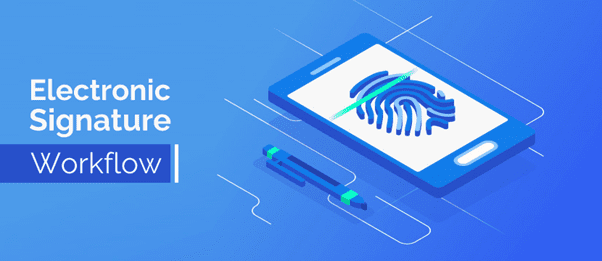Digital Signatures:
An electronic signature that offers digital data authentication and non-repudiation is known as a digital signature. A hash value, a type of unique data about the file or message being signed, is produced using a mathematical method used to construct digital signatures. Using the signature on the private key, the hash value is then encrypted to produce a digital signature that can be confirmed by anybody with access to the associated public key.
The use of digital signatures ensures that the message or document was sent by the claimed sender and has not been altered during transmission. They are frequently used in online banking, legal papers, e-commerce transactions and other applications where secure authentication and verification are crucial.
Because of the numerous advantages that digital signatures offer to businesses all over the world, they are widely employed today.
In this article, we will go over digital signatures’ key benefits and the reasons why businesses that still use paper-based document procedures should consider investing in them.
Benefits of digital signatures:
Enhanced Security:
By giving a means to verify the signatory’s identity and the authenticity of the signed document, digital signatures increase security in the corporate world. They use security methods to provide a unique digital fingerprint of the document that cannot be changed or altered covertly.
This prevents unauthorized parties from signing crucial documents, decreasing fraud and raising customer confidence in commercial dealings.

Digital signatures are a crucial tool for companies trying to improve security and streamline their processes because they also offer an audit trail that can be utilized for legal purposes if necessary.
Cost Effective:
Digital signatures help businesses save money by lowering the costs of printing, shipping and storing physical documents. Businesses can electronically sign contracts and other key documents with digital signatures instead of printing them out or mailing them. This reduces the need for paper, ink, envelopes, stamps and courier services while also saving time.
Digital signatures reduce these direct costs while also enhancing business productivity by speeding the signing procedure. Employees can sign papers using their electronic devices, such as laptops or smartphones, from anywhere at any time by enabling remote signature capabilities.

Additionally, digital signatures improve security by authenticating the person who signs their identity using encryption methods that are challenging to copy or fake. Additionally, they include a tamper-evident seal that guarantees the confidentiality of signed documents while they are being transported between parties.
Overall, implementing digital signature technology can help firms of all sizes save a lot of money while also boosting productivity and assuring document security.
Time saving:
There are various ways that digital signatures help businesses save time:
Elimination of physical signatures: Documents can be digitally signed without being printed out, physically signed and then scanned or faxed back. This eliminates the need to spend a significant amount of time on this process.
Quick turnaround: By allowing businesses to sign and transfer documents electronically rapidly, digital signatures greatly shorten the time it takes to complete a commercial transaction.
Remote signing capabilities: With a digital signature, you can sign papers at any time, from anywhere, using a smartphone or tablet that is linked to the internet. This reduces the need for personal interactions and speeds the signing procedure.
Efficiency gain: By integrating digital signatures with multiple corporate systems like CRM and ERP platforms, seamless information transfer between organizational divisions is made possible.
Overall, using a digital signature makes executing corporate transactions quicker and more effective while avoiding pointless delays brought on by conventional paper-based procedures.
Workflow Automation:
Workflow automation in business is made possible by digital signature technology, which streamlines and quickens the approval process for contracts, agreements and other crucial documents. It does away with the necessity for time- and money-consuming physical signatures, printing, scanning, or mailing of documents.
When the signed document is prepared for review or approval, it is automatically forwarded back to all pertinent parties, who are informed by email. By doing this, it is made sure that the document is always accessible to all parties participating in the process.

Digital signatures enable workflow automation, which speeds up processing times while improving accuracy and regulatory compliance.
Additionally, it aids businesses in going greener by minimizing the amount of paper and carbon emissions produced by conventional signature procedures.
Better company image and CSR (Corporate Social Responsibility):
Because it demonstrates the company’s commitment to integrity, security, and privacy, a digital signature enhances both the company’s reputation and CSR in the marketplace. A business can show its dedication to safeguarding private data and fighting fraud by employing digital signatures. Customers, investors and other stakeholders may become more trustworthy as a result.
By eliminating the need for human approvals and paper-based transactions, digital signatures can also speed up company operations. This helps environmental sustainability efforts and saves time while also cutting down on trash.

Legal compliance and widespread acceptance:
Legal compliance and widespread acceptance: Because every human being’s digital signature is distinct, it is simple to confirm the identity of the signer.
A document signed using a digital signature cannot afterwards be disputed as not being authorized or signed by the signatory. When transmitting and storing documents, digital signatures use encryption technology to guarantee data security and secrecy.

Comparing digital signature to traditional pen-and-paper procedures, time is saved, improving the effectiveness of company operations. The majority of nations now have laws that recognize digital signatures as having the same legal force as physical ones.
Happy Customers:
After a document has been signed digitally, it cannot be altered or modified, thanks to encryption technology. End consumers can rest easy knowing their information is secure thanks to this.
Digital signatures do away with the need for physical signatures, which can be difficult and time-consuming, particularly if documents need to be signed in many places.

People with limitations or mobility challenges who might find it difficult to physically sign documents can benefit more from digital signatures.
Conclusion:
In summary, digital signatures have a number of advantages for enterprises, including greater security, increased productivity, decreased costs and simplified procedures. Digital signatures have become a crucial tool for firms wanting to stay competitive in the current fast-paced business environment with the rise of online transactions and remote working habits.
Businesses can improve their operations and gain the trust of their stakeholders by implementing digital signature technology since it guarantees the validity and integrity of their documents.
As a result, modern firms must invest in digital signature solutions if they want to succeed over the long run.



































